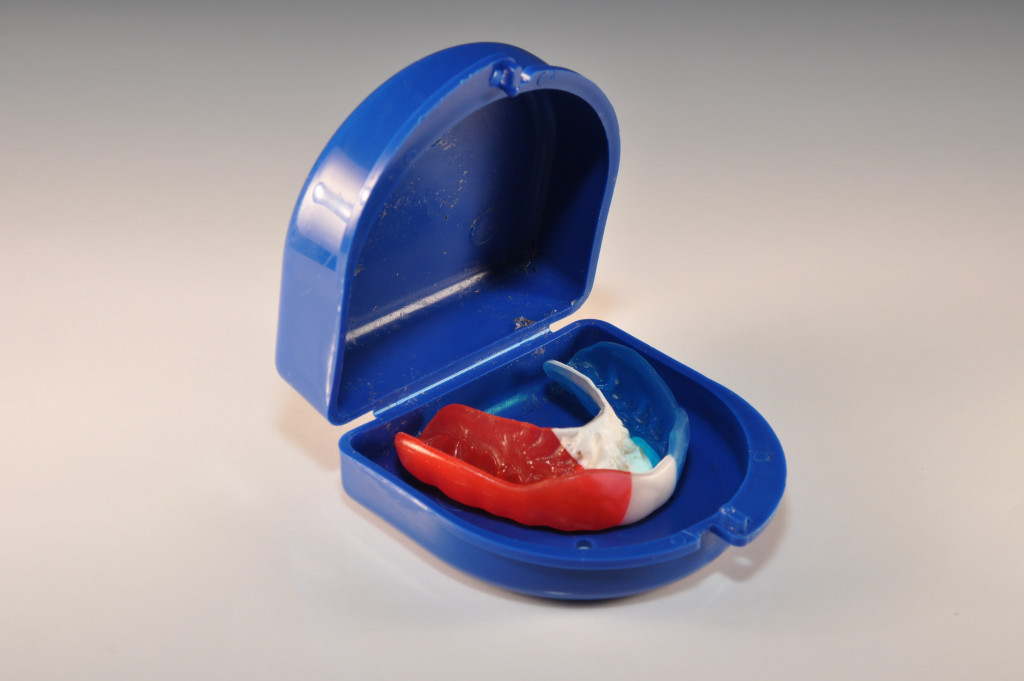While not all sports are known for causing mouth injuries, all of them warrant a certain level of caution against it. Even non-contact sports can result in falls and other forms of accidents that lead to damaged teeth and a wounded mouth. Some can be treated with first-aid, but most necessitate further treatment because they could lead to serious health repercussions.
If the sports you play include softball, football, baseball, and combat sports like wrestling, boxing, and karate, you’ll benefit from being extra careful with your mouth. It’s worth knowing exactly what injuries you can expect, why they’re serious, and the ways you can prevent and prepare for them.
Common Injuries
Of all the mouth injuries you’re most likely to experience, it would have to be fractured or cracked teeth. It’s not always visible, symptoms vary depending on the kind of cracks your teeth incur. One that affects the tooth’s cusps (the pointed tips at the bottom) will require extraction and root canal treatment to avoid bacterial infection.
When you receive a blow to the face, you may also experience fractured roots, where the crack begins at the bottom of the teeth instead of the top. Another would be tooth intrusion, which is when a traumatic impact pushes the tooth towards the jawbone.
Of course, when you do get hit or experience a collision, other parts of your mouth get affected too. Your tongue may be one of the strongest muscles in your body, but it is especially prone to injuries, especially those caused by accidental biting. You should never underestimate their severity or think that you would never experience them. By anticipating such incidents, you’ll be better able to manage the most serious injuries that can occur.
Ways to Prepare
If you’re frequently participating in sports activities, regardless if they’re amateur or professional, you should know an experienced emergency dentist. This is where you should go to in case you received a painful blow to the face during sports that resulted in facial swelling, a knocked-out tooth, and a dental abscess. Delaying could cause severe pain and infections that will only worsen your health.
Another is to keep an emergency first aid kit nearby, preferably one complete with a cold compress and hydrogen peroxide or saltwater. What’s the use of all these if you don’t know exactly how to use them, right? Brush up on your knowledge about applying first aid to mouth injuries, especially those to the tongue. It’s rich with blood supply, so any cut can cause heavy bleeding. Your priority should be to stop it by applying pressure on it for around fifteen minutes. You can then dilute the hydrogen peroxide or use salt water to rinse your mouth.
Did you know that a knocked-out tooth can be re-implanted? This is possible within thirty minutes after it leaves the socket. You’ll have to clean the tooth and store it in milk on your way to the emergency dentist or return it to the socket yourself and bite it down with sterile gauze. Knowing these emergency procedures will not only save your health; it might save you from losing a tooth altogether.
Ways to Prevent

Use mouth guards. That’s your first line of defense against injuries. Have you turned down an offer to get yours customized? You should reconsider. While generic mouth guards do offer a level of protection, a customized one does the job better. It amplifies the benefits of wearing one such as protecting your jaws, brain, neck, and teeth.
Good dental hygiene will also make your teeth strong enough to withstand blows that can cause cracks. Stay away from sugary drinks that promote cavities, and practice dental care to boost your teeth’s health. The healthier they are, the lesser the likelihood that you’ll end up with injuries.
Lastly, make regular visits to the dentist. Some cracks and fractures aren’t usually visible or easy to detect, and it’s only with professional instruments that they become apparent. Don’t take risks; if you fell, collided, or got hit while playing sports, visit the dentist at once to see if you incurred injuries.
Mouth injuries, particularly those that go untreated for long periods, can have severe health repercussions. Bacterial infection can lead to long-term damage to your entire mouth, which can then affect your eating and speaking. You’re not being paranoid by taking these steps, you’re simply being a responsible athlete.

